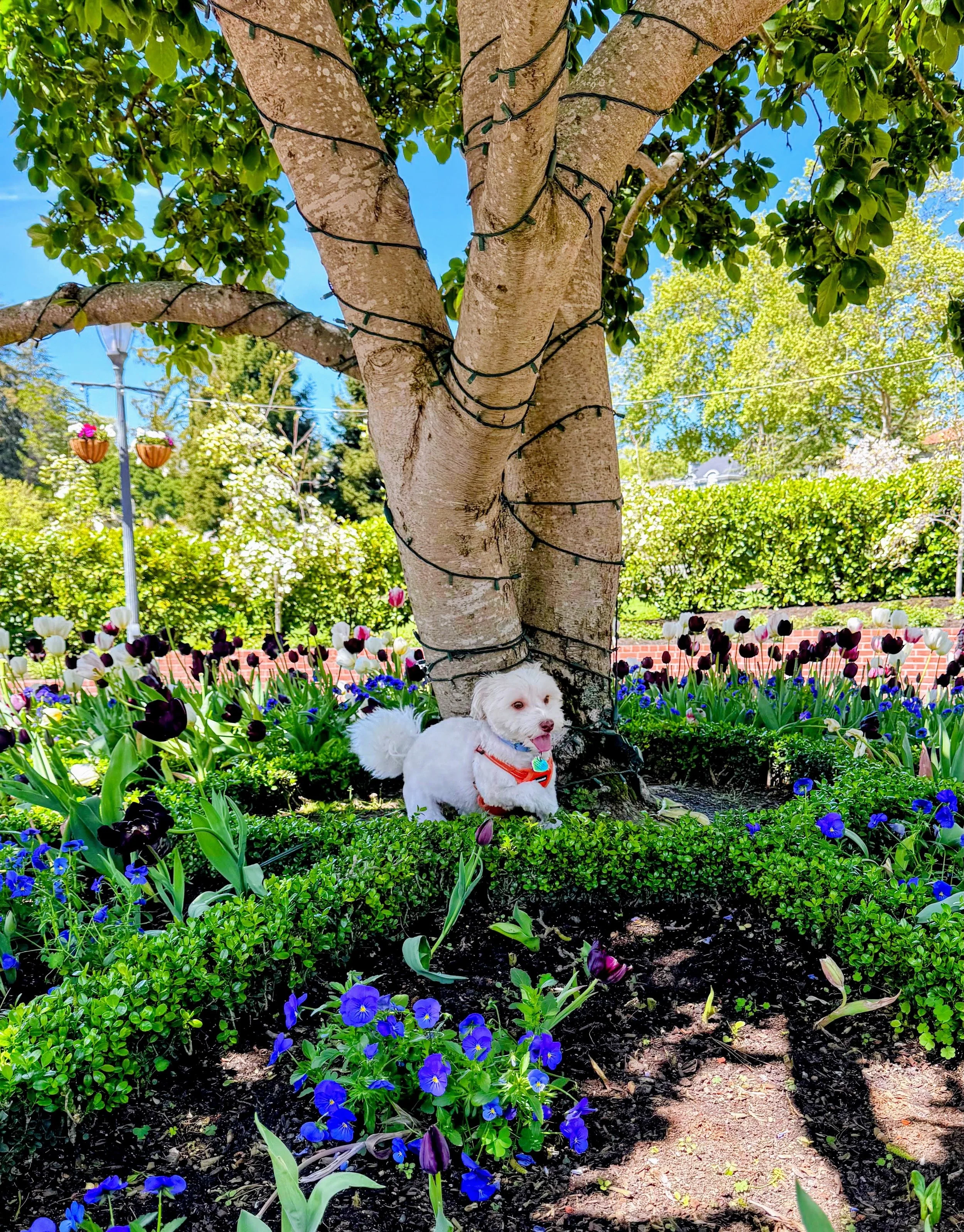A Highly Sensitive Therapist With A Highly Sensitive Dog
I knew from the moment I brought her home at 8 weeks old that she was special.
Not just adorable (though she absolutely is), but tender, alert, emotionally attuned.
My dog, Ona, is what I would call a highly sensitive animal—and as a highly sensitive person (HSP) myself, I recognized it right away.
She watches me constantly. Tracks my moods. Picks up on subtle shifts in tone, energy, breath. When I’m anxious, she paces. When I’m sad, she leans in. When the world feels overwhelming, we retreat together. She’s not just a companion—she’s a mirror. A living, breathing reflection of attunement.
What Does It Mean to Be a Highly Sensitive Animal?
Just like people, some animals are born with a more finely tuned nervous system. In the field of animal behavior, this is often described as sensory processing sensitivity—the same trait identified in Dr. Elaine Aron’s research on highly sensitive people. Dogs, cats, horses, and other mammals can show signs of this trait, too.
Highly sensitive animals tend to:
React more strongly to loud noises or sudden changes
Be highly observant and cautious in new environments
Startle easily or take longer to recover from stress
Form deep bonds and crave emotional closeness
Need more gentle, consistent handling
For Ona, this looks like flinching at distant fireworks, freezing in busy streets, and barking at unexpected sounds. But it also looks like watching me with eyes full of understanding, waiting by the door when I’ve had a hard day, and curling beside me during moments of heartbreak.
Living With a Sensitive Dog as a Sensitive Person
In many ways, Ona and I are made of the same fabric.
She reflects my inner world back to me in real time. If I’m activated, so is she. If I’m grounded, she settles. Her body teaches me what my nervous system is too busy to notice.
And yet, her sensitivity isn’t always easy. It requires me to slow down. To soften my voice. To prepare her for transitions. To advocate for her when others expect her to be more social or “well-behaved.”
There’s grief in that sometimes—the grief of not having the kind of dog who can romp freely through crowded parks or meet every stranger with tail wags. But there’s also deep love in caring for someone who feels the world so acutely.
Why Sensitivity Is Not a Weakness
We live in a culture that often rewards toughness and independence—both for people and for pets. But sensitivity is not fragility. It’s depth. Intelligence. Relationship.
Ona may be cautious out in the world, but she’s also intuitive, empathetic, and fiercely loyal. She senses things I miss. And she reminds me, again and again, that the goal isn’t to harden ourselves—but to create the kind of environments where softness can exist without shame.
What Ona Has Taught Me
She’s taught me how to be gentler—with myself and with others.
She’s taught me the power of patience, of protecting what’s tender, of finding safety in attunement.
She’s taught me that sometimes, love doesn’t look like obedience or bravery. It doesn’t always mean charging forward or getting it “right.” Sometimes, love looks like hesitation—like trembling and retreating, then slowly inching back towards connection. It’s the bark of fear followed by the lean of trust. It’s staying close, not because the world feels safe, but because love does.
And perhaps most of all, she’s reminded me that sensitivity—far from being a flaw—is a sacred way of relating to the world. It’s the language we share, instinctively. I chose her, yes—but it feels just as true that she chose me. As if something quiet and ancient knew that we belonged to each other all along.
Are You a Highly Sensitive Person?
If you resonate with being highly sensitive, you’re not alone. I offer therapy for highly sensitive people—those of us who feel deeply, love deeply, and sometimes struggle to find our place in a loud world.
Let’s work together to create the inner and outer environments where you (and your nervous system) can truly thrive. Reach out to me today.
